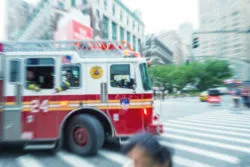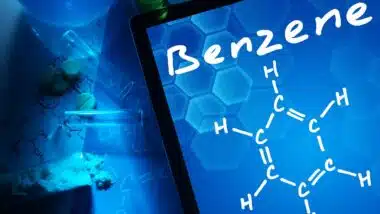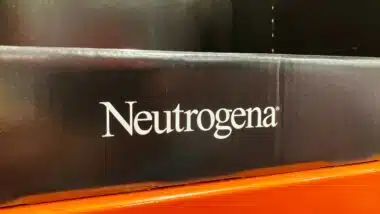 The Victim Compensation Fund, set up to help compensate for injuries and deaths caused by the horrific attacks of September 11, is about to start drastically cutting the payout that victims and their families will receive.
The Victim Compensation Fund, set up to help compensate for injuries and deaths caused by the horrific attacks of September 11, is about to start drastically cutting the payout that victims and their families will receive.
Many victims of the 2001 tragedy are only now feeling some of the most devastating effects. Indeed, thousands have so far been diagnosed with one or more of dozens of types of September 11 cancer.
The Victim Compensation Fund is supposed to help, but with funds running out, many survivors and their families may not receive nearly the compensation that they should.
The Victim Compensation Fund
As of the end of 2018, a total of 93,028 first responders and survivors were being treated or monitored in the World Trade Center Health Program. Around 800 more people sign up for the program every month.
Tragically, 2,199 of those who have signed up for this program have died so far. Others who have suffered from lasting injuries as a result of the September 11 attacks, including cancer, but were not part of the World Trade Center Health Program have also died. Now, nearly 20 years after that horrific day, the death toll of victims and first responders who have died since the attack is quickly approaching the death toll from the initial attack.
Even though more and more victims and first responders are being diagnosed with various types of September 11 cancer, and the list of casualties is growing, funding for the Victim Compensation Fund is dwindling.
Indeed, Congress approved $7.4 billion for the VCF in 2015, but just a few years later, it is already running out of money. So far, the current VCF has spent about $5 billion divided among 20,000 claims. 20,000 more claims are still pending, and more cases are being filed, but there is far less money available.
On Feb. 15, VCF Special Master Rupa Bhattacharyya announced that pending claims will be paid half of what earlier claims did. Cases filed after February 1 will receive about 30 percent of what they used to, and after 2020, the funds will run out and victims will not receive these payments at all.
It may seem like enough time has passed that anyone eligible for the Victim Compensation Fund would surely have come forward by now, but that is not at all the case. Indeed, there are many cancers that are only now beginning to emerge, years later.
Rob Serra, a firefighter whose first day on the job was the September 11 attack itself, told the New York Daily News he was forced to retire in 2012 due to difficulty breathing and nerve damage. He considers himself “fortunate” that he got sick early enough that he could receive payment from the Victim Compensation Fund.
“It doesn’t sit right to me that I would get something that other people don’t get,” Serra said.
Advocates and first responders have recently been protesting at the U.S. Capitol, urging Congress to restore funding to the VCF.
Bhattacharyya said she was “painfully aware of the inequity” of these cuts to funding.
Pursuing Compensation for September 11 Victims and First Responders
Types of September 11 cancer eligible for compensation include lung, prostate, melanoma, leukemia, and brain cancer, along with dozens more. In order to be eligible, patients must have been diagnosed with an applicable cancer at least four years after exposure. The exception is blood and bone cancers, which have different latency periods, and must have been diagnosed at least one year after exposure.
If you or a loved one were exposed to environmental hazards after the horrific September 11 attacks and were later diagnosed with an eligible September 11 cancer, or if a loved one has died because of such cancer, you may be able to gain compensation.
Navigating the complex and burdensome paperwork and strict deadlines to participate in the 9/11 Victim Compensation Fund can be difficult. An experienced 9/11 Victim Fund attorney can help and ensure you get the maximum compensation available.
If you were present near Ground Zero, generally considered to be Lower Manhattan below Canal Street, between September 11, 2001 and May 31, 2002, and were diagnosed with cancer 4 years or more after exposure (or 1 year or more for blood and bone cancers), you may qualify for compensation.
Submit your information now for a free, no-obligation review of your potential 9/11 cancer fund claim.
ATTORNEY ADVERTISING
Top Class Actions is a Proud Member of the American Bar Association
LEGAL INFORMATION IS NOT LEGAL ADVICE
Top Class Actions Legal Statement
©2008 – 2026 Top Class Actions® LLC
Various Trademarks held by their respective owners
This website is not intended for viewing or usage by European Union citizens.
Get Help – It’s Free
Free 9/11 Cancer Fund Claim Evaluation
If you qualify, a September 11 Victim Compensation Fund attorney will contact you to discuss the details of your potential claim at no charge to you.
PLEASE NOTE: If you want to participate in this investigation, it is imperative that you reply to the law firm if they call or email you. Failing to do so may result in you not getting signed up as a client or getting you dropped as a client.
Oops! We could not locate your form.












